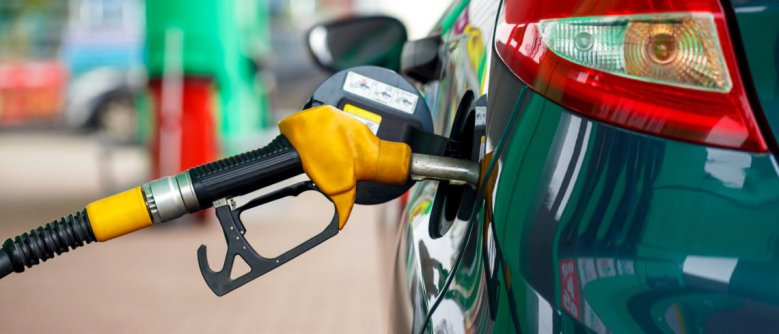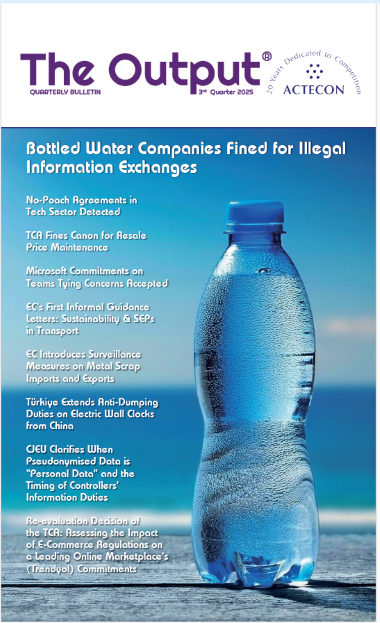European Commission Opens In-Depth Investigation into Possible Collusion Between German Car Manufacturers on Clean Emission Technology
| Competition Law

European Commission Opens In-Depth Investigation into Possible Collusion Between German Car Manufacturers on Clean Emission Technology
Article by Barış Yüksel, Mustafa Ayna, and Emine Bilsin
On 18 September 2018, the European Commission ("EC") opened a full-fledged investigation regarding the possible collusion between the German car manufacturers, BMW, Daimler, Volkswagen, Audi, and Porsche known as the "Circle of Five". It will be examined whether these manufacturers entered into illegal agreements concerning the technological development of passenger cars, which may have denied consumers the opportunity to buy less polluting cars, despite the technology being available to the manufacturers.
European emission regulations that are commonly referred to as Euro I, II, III, IV, V and VI, were originally introduced by the Directive 88/777EEC and were pursued by a number of amendments. The first EU standard, known as Euro I, was introduced in 1992. In 2013, Euro VI emission standard came into force by Regulation 595/2009. The aim of clean emission technology is to reduce the levels of harmful exhaust emissions and to make passenger cars less damaging to the environment.
In particular, the collusion that allegedly aims to limit the development and roll-out of certain emission control includes:
Selective catalytic reduction ("SCR") systems to reduce harmful nitrogen oxides emissions from passenger cars with diesel engines; and
Otto particulate filters ("OPF") to reduce harmful particulate matter emissions from passenger cars with petrol engines.
The EC will carry out a full-fledged investigation to assess whether BMW, Daimler, and VW (Volkswagen, Audi, Porsche) colluded to restrict competition on the development and roll-out of the emission control systems for cars. The investigation primarily focuses on information illustrating that the companies participated in meetings where they discussed collectively limiting the technical development or preventing the roll-out of technical devices.
Although the current investigation deals only with certain emissions control systems, the EC notes that, various other technical topics were discussed by the companies, including common quality requirements for car parts, common quality testing procedures or exchanges concerning their own car models that were already on the market, maximum speed at which the roofs of convertible cars can open or close and at which the cruise control will work. However, the EC concluded that there is no sufficient indication to merit further investigation on the ground that these discussions between the companies constituted anti-competitive conduct.
In addition, the EC notes that it has no indications so far, showing that the companies coordinated with each other in relation to the use of illegal defeat devices to cheat regulatory testing.
It should be noted that anti-competitive agreements concerning emission standards compliance is not a new topic in EU competition law. In 2016, the EC imposed fines totaling €2.93 billion on four truck producers, which is the highest fine imposed on members of a cartel. The EC concluded that MAN, Volvo/Renault, Daimler, Iveco, and DAF were parties to an anti-competitive agreement that lasted for 14 years in the market for the manufacturing of medium/heavy truck. A year later, in 2017, the EC also fined Scania €880 million for participating trucks cartel, since Scania decided not to settle this cartel case with the EC, in 2016.
The EC had found that; (i) coordinating the timing for the introduction of emission technologies for medium and heavy trucks to comply with the European emissions standards (from Euro III through to the currently applicable Euro VI) and (ii) collectively determining how the costs for the emissions technologies required to meet the European emissions standards (from Euro III through to the currently applicable Euro VI) were to be passed on to customers were among the subjects of the anti-competitive agreement.
The EC emphasized the said decision's importance, as it reveals the need for a functioning competitive market to promote the development and dissemination of cost-efficient low-emission technologies, which is one of the elements of the upcoming European Strategy for low-emission mobility.
The recent investigation initiated against the Circle of Five and the exorbitant fine imposed on the truck manufacturers show that the EC is quite sensitive when it comes to competition concerning the implementation and progress of environmental technologies which are closely related with public welfare. This investigation should be a reminder that the competition authorities are not only concerned with the sales activities and expect companies to act independently of their competitors in every aspect of their business from compliance to human resources.







